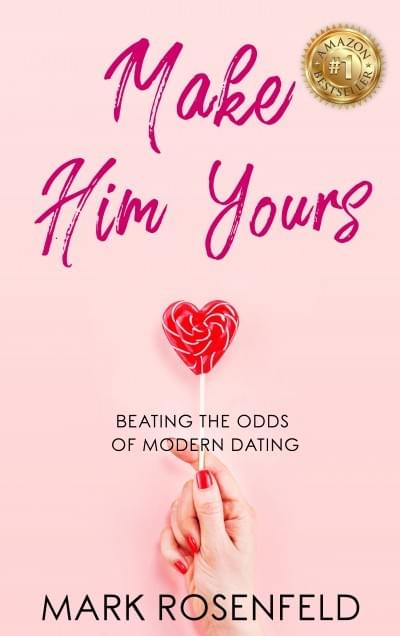Why doesn’t my intimate relationship look and feel the way I want it to?
Why doesn’t my career look and feel the way I want it to?
Why doesn’t my relationship with my family and friends look and feel the way I want it to?
And why don’t I have the free time I need to do something about all of it?!?
If you’ve ever found yourself wondering about those questions, you’re not alone. Many of the questions my YouTube subscribers send in fall into one of these four categories.
While those viewers are trying to figure out the answers, they’re usually busily engaged in some kind of coping mechanism. It’s the human thing to do – to find adaptations. It’s how we deal with our problems and manage stress. The only problem is, sometimes those coping mechanisms make a person really difficult to date, or be in a relationship with, or stop you from taking the action you need to take to change your life.
My client, Lindy, had recently ended a 5-year relationship where she’d consistently worn the pants. Keeping control, making decisions, and taking charge had kept her feeling safe in her relationship and her life… until, paradoxically, these habits led to her relationship’s demise. As she was processing the anger, the sadness and the fear, she started to discover that her adaption (taking control) wasn’t so useful when it came to emotions or relating intimately to men.

Controllers can be great leaders and visionaries but their gift of influence and action-taking often results in them squashing disagreement or trusting only themselves. Since they often have great ideas, it’s easy for them (and others) to believe their way is the right way. But it doesn’t feel good to be the partner of a controller because you feel unheard, disempowered, and incapable. For men, throw in some emasculation on top of that, and you have a right relationship mess.
If you’re a controller and you want to alter this habit, here are a few small things you can do to interrupt your own pattern:
- Don’t share your opinion, even when asked for it. (Go silent. Resist the urge to take control.)
- Find something to say, “I was wrong” about.
- Distinguish between ruminating and problem-solving. Oftentimes, people think they’re mentally solving problems when they’re really just continuously thinking the same thoughts over and over.
There’s another coping style you might fall into: The Distractor.
 Distractors keep themselves safe by staying busy and checked out. Instead of feeling their feelings or facing discomfort, distractors spend hours playing video games, shopping, watching TV, doing projects, surfing on social media, etc. Sure, they can multitask but their energy is scattered and unfocused. As a result, they struggle to create what they want in life. To a romantic partner, it can feel like their distractor is “somewhere else,” and never fully present.
Distractors keep themselves safe by staying busy and checked out. Instead of feeling their feelings or facing discomfort, distractors spend hours playing video games, shopping, watching TV, doing projects, surfing on social media, etc. Sure, they can multitask but their energy is scattered and unfocused. As a result, they struggle to create what they want in life. To a romantic partner, it can feel like their distractor is “somewhere else,” and never fully present.
If you’re a distractor and you want to change this habit, you can begin to interrupt your pattern by doing one thing at a time and waiting a full minute between tasks during which you sit, breathe, and do nothing. (Yeah, it’s gonna be real uncomfortable.)
Maybe the Isolator coping strategy resonates with you.

The isolator habitually hides when they’re scared or in an uncomfortable situation. Even if they’re still physically present, they may emotionally retreat. They shut down. Sometimes they go quiet; sometimes they leave the scene. That can be hard for a relationship partner.
And if the isolator is single, they may shy away from being out and about or going to social functions. You can see the self-sabotage happening in that coping mechanism, right?
Sometimes the isolator is busy tending to their inner life or self-care; they often have a strong connection to spirituality and a strong sense of self. But they’re also split between conflicting desires–a deep yearning to be seen and to be invisible. They habitually constrict their energy and their choices.
If you’re trying to break the habit of isolating:
- Go out to a social event even if you don’t feel like it.
- Set an intention to meet one new person/day.
- Go deeper with someone you know/trust by sharing a vulnerability.
One of the most common coping mechanisms I see among the women in my coaching practice is that of the Pleaser.
 Pleasers believe they’ll only be accepted and feel safe when they’re helping others. In fact, they practically derive their identity from it. They constantly scan other people’s reactions, wanting to be sure everyone is happy.
Pleasers believe they’ll only be accepted and feel safe when they’re helping others. In fact, they practically derive their identity from it. They constantly scan other people’s reactions, wanting to be sure everyone is happy.
A romantic partner may appreciate their sensitivity and the way the pleaser shows up ready to serve, but the pleaser can develop a deep sense of resentment at always having to be attuned to everyone’s needs but their own. Pleasers often end up feeling like victims or martyrs in relationships.
The first step to breaking free of your pleaser pattern is to say no to something you would usually say yes to. When you’re at someone’s house, if you would usually pitch in and help, resist the urge; sit in the discomfort of not cleaning up. If someone asks you where you want to eat, don’t say, “I don’t care” with a shrug; give an opinion.
If you’re really serious about breaking down the coping mechanism you use most, make a list of the ways it actually weakens or undermines you–ways it makes you less effective at work, less connected in life, and less available for a relationship.
Your true power comes from your willingness to embrace challenges and face your fears and weaknesses and use them to build your resilience. Once you do this as the empowered woman you know you can be, you won’t need those coping mechanisms anymore!









